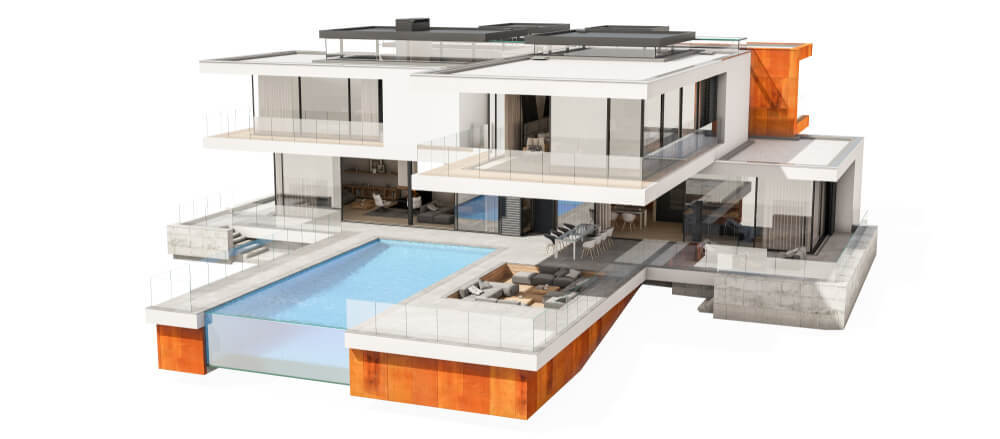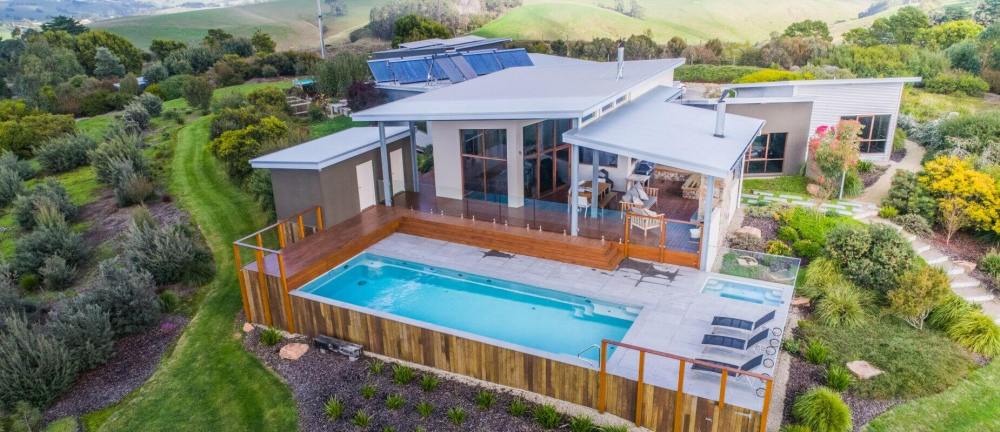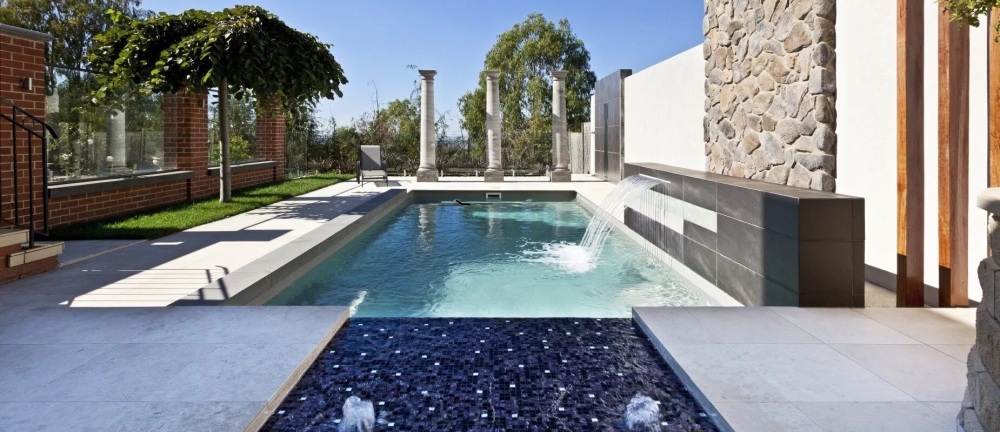These days, it seems like people are always keen on the idea of taking the DIY route in just about any home-related project. Whether it’s a bathroom, kitchen or bedroom makeover, or even turning a garage into a home office, homeowners are more than willing to take a full hands-on approach.
One of the obvious benefits is cost savings as you get to save on labour, which is a major expense in home building or renovation projects. However, can this DIY approach be implemented when it comes to installing or building a swimming pool?
Let’s find out by putting the DIY pool approach against having your pool professionally built.
Documentation and approval
Before any building can start, you need to get the necessary council approvals and building permits. Professional pool builders know what building regulations apply in the state or jurisdiction where they operate. With their help, you can avoid the costly mistake of forgetting to submit the required documents and secure the right permits. Your pool contractor can take care of the approvals process so you can commence construction without fear of being subjected to hefty fines.
Moreover, different states and jurisdictions abide by specific building codes, so you may not have any other option than to have a duly licensed pool building contractor do the job for you.
A complicated process
Attempting to build your own pool is no small feat. It’s not only complex and time-consuming, but it’s also expensive and requires the use of various skills and different equipment. Depending on the type of DIY pool you have in mind, you’ll be required to use plumbing, building and electrical wiring skills, among others. You’ll actually be performing various tasks of different tradesmen in the process.
There are other pool alternatives which may be easier to DIY though. If you are looking for quality but don’t mind having an above ground pool, Little Pools might be for you. You can select from their range of above ground fibreglass pools which feature the quality characteristics of Compass Pools but they are portable at the same time. You will have your pool up and running in no time and moreover, you’ll be able to take the pool with you when moving to a new house.
Let’s back to DIY inground pools, though. From the excavation stage, you need to ensure that you dig up exactly what’s required as anything removed in excess will impact the required backfill material. It can also set work back by a day or so, depending on how frequently you can focus on your DIY swimming pool building project.
If you are building a swimming pool in a challenging site such as sloping or uneven ground, you may be better off allowing professionals to do the job. Gordon Ave Pools & Spas as an authorised Compass Pools Australia reseller use what they call Maxi Rib technology to tackle difficult building sites. So, whether you want an infinity pool or some other type of pool built in a rather challenging section of your property, Compass Pools has the technology and expertise to do make the pool you need.
How to build your own pool: essential steps
There are specific essential steps that cannot be missed in building DIY pools to ensure your project goes smoothly. These steps are as follows:
- Taking accurate ground measurements and ground analysis
- Choosing a design and drawing up 3D plans on a computer
- Inquiring about pool and other costs and necessary permits
- Excavation proper
- Base preparation and pipe installation
- Wall and floor construction
- Finishing, installation of filling systems and pool lighting
The above items represent the seven basic steps of building a DIY in-ground pool. However, each step involves several tasks and the application of various skills. So, if digging up your pool area is expected to take longer, you might be better off asking a professional with the necessary equipment to do the digging for you. The same goes for the plumbing and electrical work — these types of tasks require the skills of licensed plumbers and electricians.
So, even if you are a skilled AutoCAD draughtsman who can design a beautiful pool that’ll fit snugly in the space provided, it doesn’t mean you ought to take on the job of an entire pool construction team.
DIY pool – potential problems
On top of these, there are extremely important tasks you need to undertake to prevent future structural problems:
- Ensuring the bedding material beneath the pool shell is properly drained
- Installing a filtration system that’s completely compliant with AS1926.3:2010 Water Recirculation Safety Standards
- Using only cement-stabilised backfill (compacted and washed) for the walls and steps
- Having a sub-soil drainage and a compliant standpipe system
- Addressing external soil reactivity through the use of an engineered concrete bond beam that’s reinforced and tied to the fibreglass coping
Would you know how or where to start doing these things? With a professional pool builder by your side, you won’t need to worry about missing these important details or doing them wrong.
Necessary equipment and supplies
Just as different skill sets are required to construct a swimming pool from scratch, you’ll also need various tools and equipment to efficiently build your own pool.
- Excavation: You need to use paint or a sturdy length of string for marking the pool layout. You’ll need shovels, rakes and perhaps even a sledgehammer and pickaxe for shaping fine corners. For digging or excavation work proper, you’ll need to use a backhoe or some other type of earthmoving machine. Additionally, you may find having a transit level, measuring tape and wheelbarrow quite handy. You’ll also need a few sets of work clothes, boots, knee pads and gloves, and perhaps set up a tarpaulin cover to protect the work area in case of rain.
- Wall building: You’ll need a compactor to ensure the ground you’ll build on is level, as well as a rake, broom and shovel. Once you start constructing the walls, make sure you have drills, wrenches, an extension cord, a rubber mallet, screwdrivers and a carpenter’s level on hand. Add to these some roofing shakes or shims for levelling walls. For installing the pool coping, you’ll need a waterproof caulk and putty gun.
- Plumbing: Channel pliers and a hacksaw are plumbing essentials. Additionally, ensure you have a hole saw, mitre box, reciprocating saw, sandpaper, fresh PVC glue and primer to do the job.
- Flooring: For the base, you’ll need Vermiculite. Also, make sure these items are on hand: wheelbarrow, buckets, rounded-edge trowels, knee pads and broom.
- Liner installation: Use a Shop Vac or blower when installing the liner. Have a razor knife for cutting the liner around the drain, main drains and inlet. Use a piece of tarp, old liner or wood to cover each step (if your pool has a step section) once the liner is set.
- Miscellaneous DIY tools: Other essential DIY pool tools include a stiff rake, a leaf blower, plate compactor, rotary laser level and spray paint. You might also need some eye protection and sunscreen as you’ll likely be working outside during the daytime. You could play some music, too, to stay focused and energised. If you want to document the process for posterity or for reference, you could set up your smartphone camera or camcorder.
- Other supplies: Floor base or pool base material, concrete and gravel
Looking at the above list, it already seems long and overwhelming. When purchasing these items, you do not only need an itemised list; you also need to ask about which brands would work best for your DIY pool project. You can also get recommendations based on price and quality.
With a professional pool contractor, you needn’t worry about shopping around for items you’ve never encountered before. Your contractor is also likely to get better prices on such items as they would already have established relationships with vendors and suppliers.
Time considerations
Before embarking on a DIY pool project, make sure you have a concrete idea of how long it’ll take. With a pool construction team, gunite or concrete pools can take anywhere from 45 to 75 days to finish, while others peg this at three to six months. Fibreglass pools, on the other hand, take about three to six weeks to construct.
If you do the work alone, or perhaps even with a small team of friend volunteers, how much longer should you add to these estimates to have a realistic timeline? Also, will you be dedicating your time 100% to the project as not doing so would have a profound impact on how long it’ll take?
Details and finishing work
To do the job perfectly (or near perfection, at least), you need to have a keen eye for the details you should be taking note of in your pool building project. You don’t want to end up with a sloppy job, so why not leave it to professionals who are trained to handle such tasks?
Partnering with a professional pool builder also means getting a warranty and an assurance that you’ll not only be getting quality services but also access to high-quality building materials at the best prices.
So, really, you still save money in the end without compromising work quality.
Need help with your pool project?
There’s no need to DIY pools in Geelong, Victoria or elsewhere.
All you need to do is call us at Gordon Ave Pools & Spas — the authorised dealer of Compass Pools — to get a free trial or a free quote.
We install high-quality pools that come with the seal of our fine workmanship.




